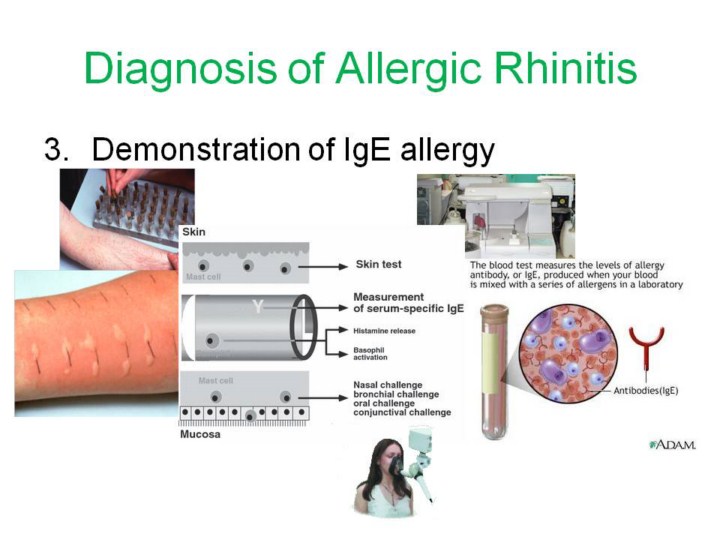| front |1 |2 |3 |4 |5 |6 |7 |8 |9 |10 |11 |12 |13 |14 |15 |16 |17 |18 |19 |20 |21 |22 |23 |24 |25 |26 |27 |28 |29 |30 |31 |32 |33 |34 |35 |36 |37 |38 |39 |40 |41 |42 |43 |44 |45 |review |
 |
Allergic rhinitis is associated with a symptom complex characterized by paroxysms of sneezing, rhinorrhea, nasal obstruction, post nasal drainage, and itching of the eyes, nose, and palate. (See 'Introduction' above.)
Identification of the specific allergens to which the patient is sensitive is not necessary for successful treatment in many cases. However, patients whose symptoms are severe or refractory to therapy should be referred to an allergy specialist for a more definitive evaluation. Properly performed skin testing is the best method for determining allergic sensitization. The differential diagnosis of allergic rhinitis includes acute and chronic rhinosinusitis, chronic nonallergic rhinitis, rhinitis medicamentosa, atrophic rhinitis, and rhinitis due to systemic medications. |